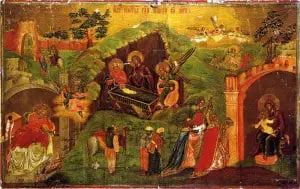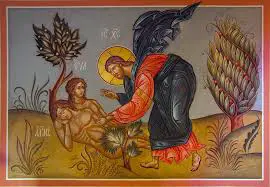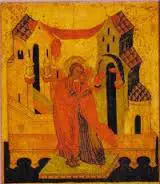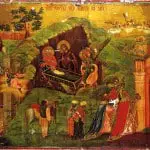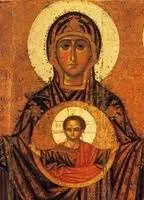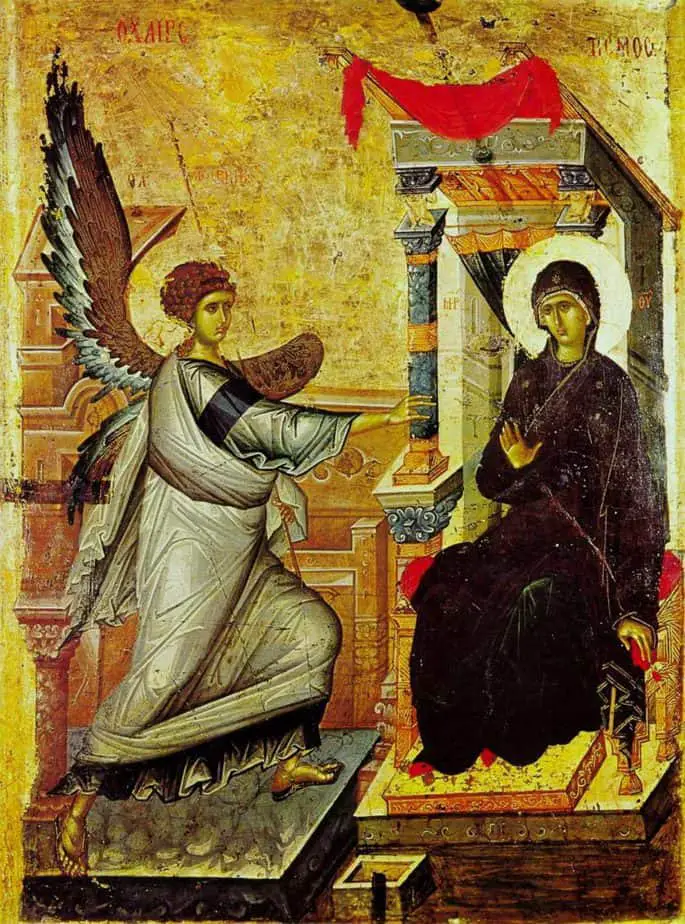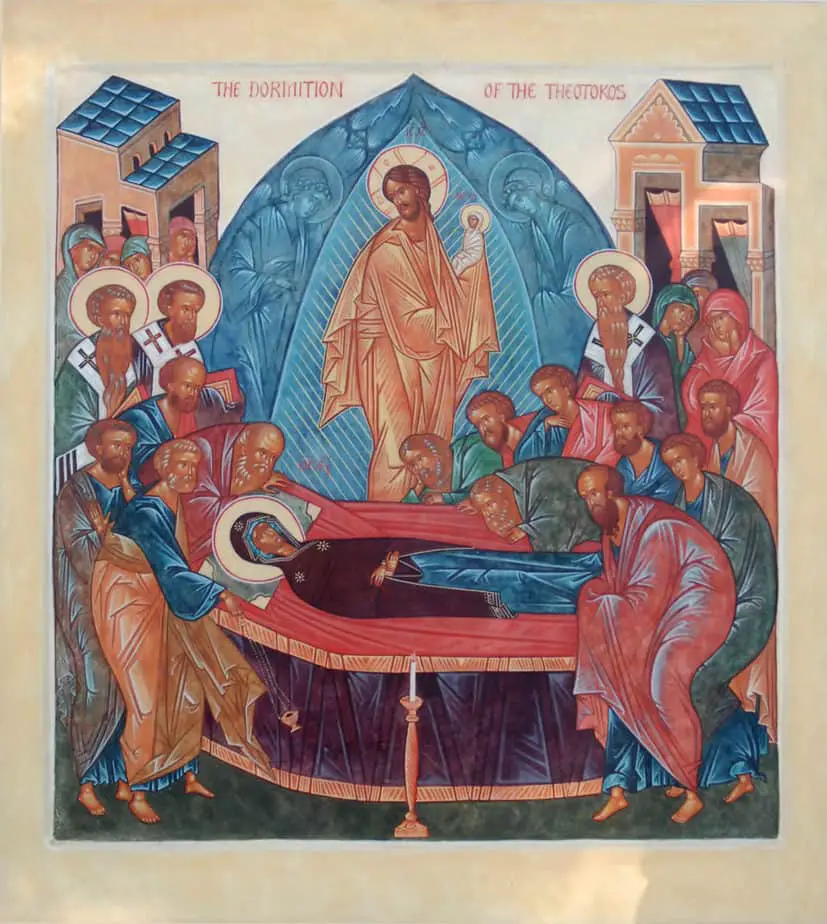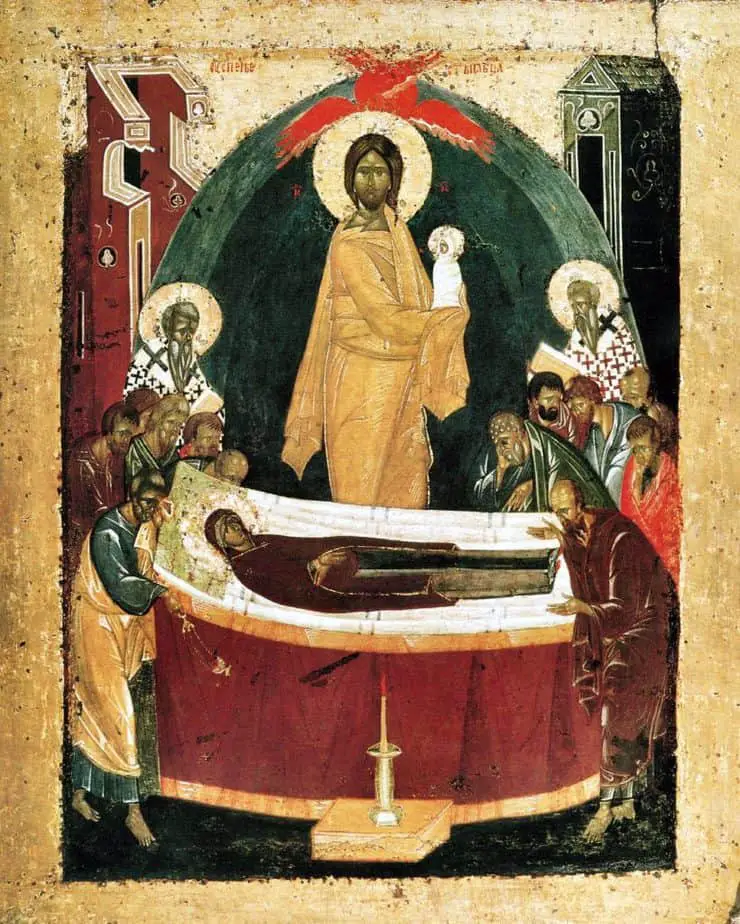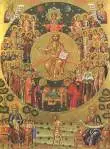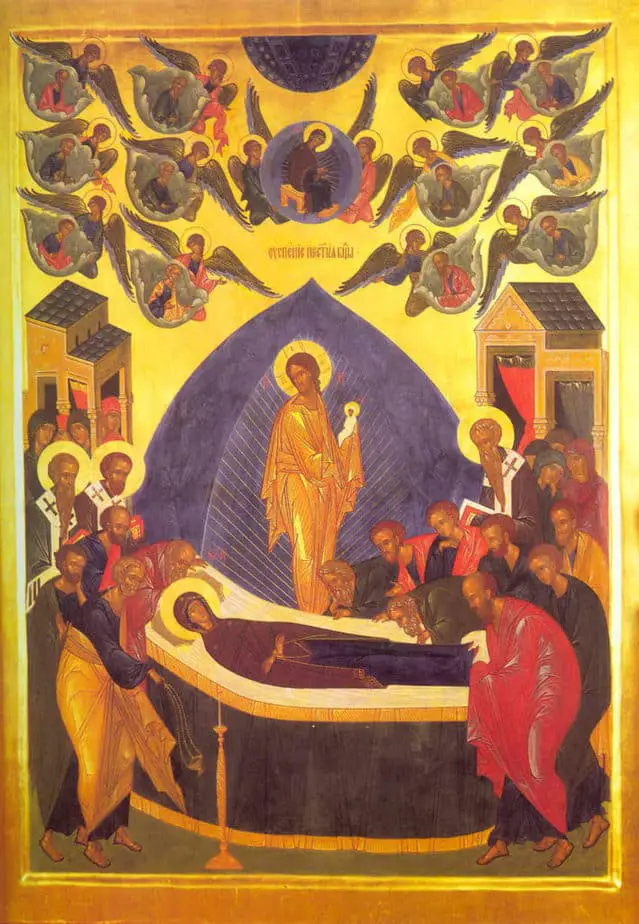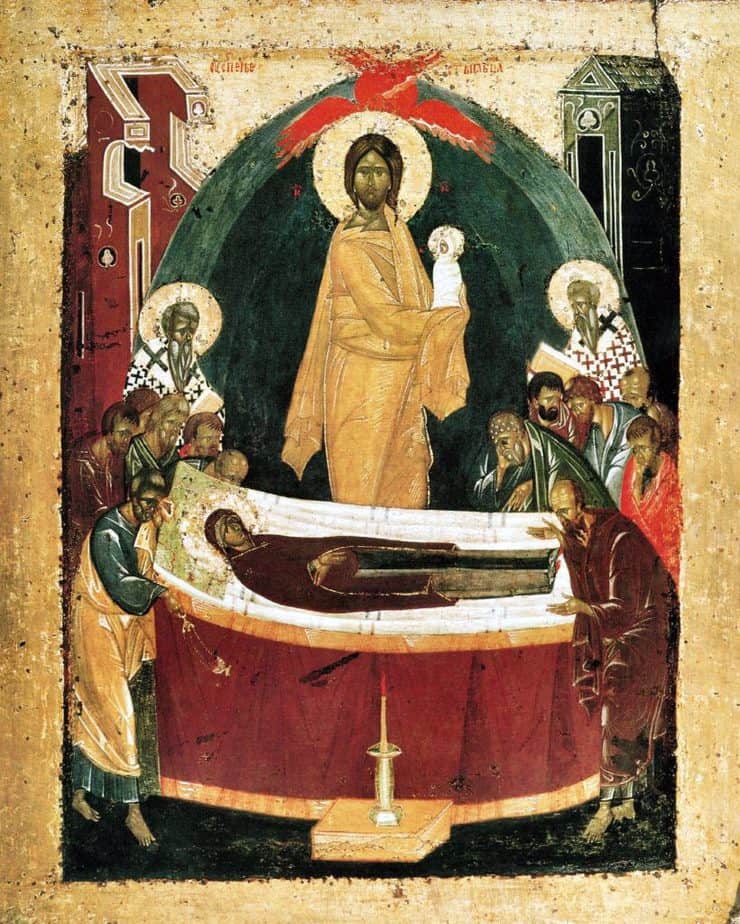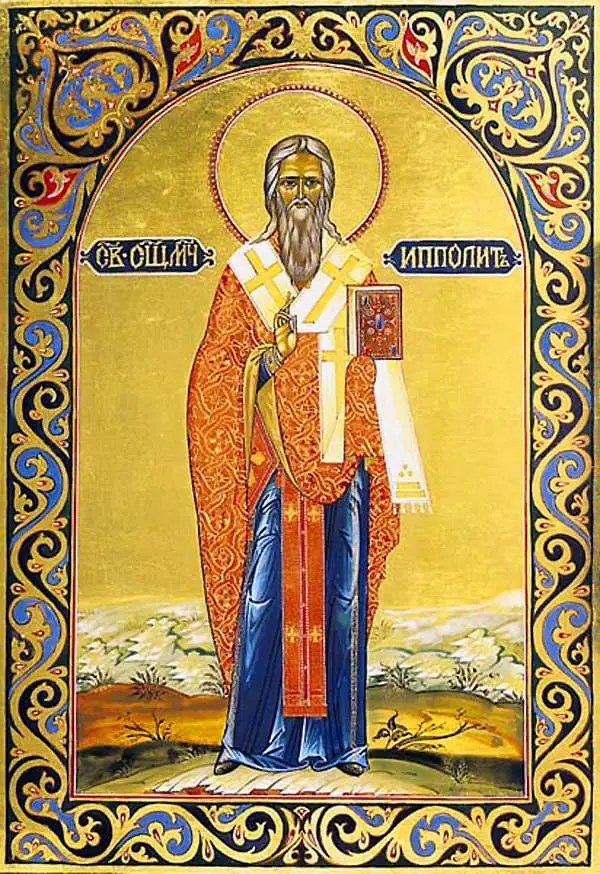When was such a wonder of wonders ever seen by men? How does the Queen of all lie breathless? How has the Mother of Jesus reposed? Thou, O Virgin, wast the preaching of the prophets; thou art heralded by us. All the people venerate thee; the angels glorify thee. Rejoice, thou who art full of grace, the Lord is with thee, and through thee, with us. With Gabriel we hymn thee, with the angels we glorify thee; and with the prophets we praise thee, for they announced thee.
Habakkum beheld thee as an overshadowed mountain, for thou art covered with the gifts of the Holy Spirit. Daniel beheld thee as a mountain from whom, seedlessly, the solid and strong King, the Christ, issued forth. Jacob saw thee as a ladder upon Whom Christ came down to eat and drink with us. And although we, His slaves, contemplate ascending into the heavens, yet thou hast ascended before all. Rejoice, O Virgin, for Gideon beheld thee as a fleece. David saw thee as the virgin daughter of the King. Isaias called thee Mother of God and Ezekiel a gate. All the prophets prophesied thee!
What shall we call thee, O Virgin? Paradise. It is meet, for thou hast blossomed forth the flower of incorruption, Christ, Who is the sweet-smelling fragrance for the souls of men. Virgin? Verily, a virgin thou art, for without the seed of man thou gavest birth to our Lord Jesus Christ. Thou wast a virgin before birth and virgin at birth and still a virgin after. Shall we call thee Mother? This is meet too; for as a Mother thou gavest birth to Christ the King of all. Shall we name thee Heaven? This thou art also for upon thee rose the Sun of righteousness. Wherefore, rejoice O Virgin, and hasten to thy Son’s rest and dwell in the tents of His beloved. Hasten there and make ready a palace and remember us and all thy people also, too. O Lady Mother of God, for both we and thyself are of the race of Adam. On account of this, intercede on our behalf; for this supplicate thy Son Whom thou hast held in thine embrace, and help us in our preaching and then afterwards that we may find rest in our hopes. Go forward, O Virgin from earth to heaven, from corruption to incorruption, from the sorrow of this world to the joy of the Kingdom of the heavens, from this perishable earth to the everlasting Heaven. Hasten, O Virgin to the heavenly light, to the hymns of the angels, to the glory of the saints from all the ages. Hasten, O Virgin, to the place of thy Son, to His Kingdom, to His power, where the angels chant, the prophets glorify and the Archangels hymn the Mother of the King, who is the lit lampstand, wider than the heavens, the firmament above, the protection of Christians, and the mediatress of our race.”
+ St. Hierotheos, Quoted from The Life of the Virgin Mary, the Theotokos, Holy Apostles Convent, pp 476-77. Originally sourced from The Great Synaxaristes of the Orthodox Church (in Greek), see footnote 134, pg 592, in The Life of the Virgin Mary for greater detail.
